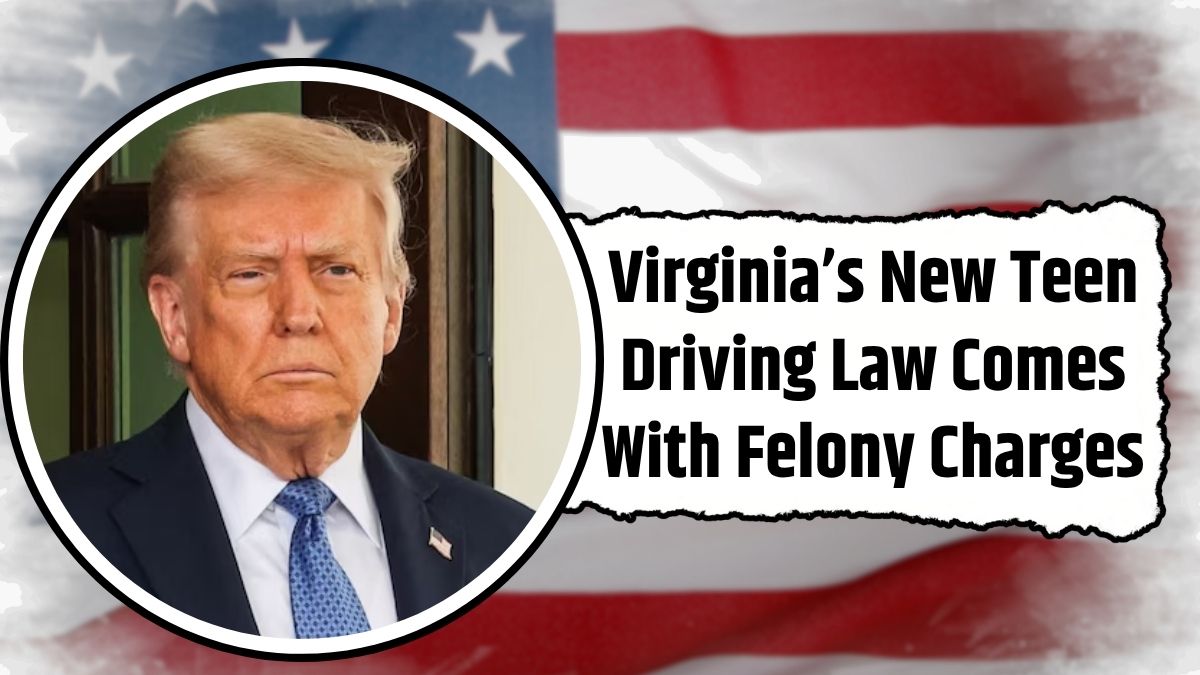Starting July 1, 2025, Virginia is enacting stricter traffic laws targeting underage, unlicensed drivers and the adults who allow them behind the wheel. Prompted by a tragic accident involving a teen driver, the new law imposes serious penalties, including fines up to $2,500 and even felony charges, for both the minor and any adult who permits such behavior.
Law Triggered by a Tragedy [Teen Fatality Leads to Reform]
The law was passed after the heartbreaking 2019 death of Joseph Conner Williams Guido, known by loved ones as “Gweedo.” He died in a crash caused by an unlicensed teen driver. His mother, Tammy McGee, turned her grief into action by forming the Gweedo Memorial Foundation, an organization focused on teen driver education and public safety advocacy.
McGee’s campaign for stronger accountability gained support among lawmakers and ultimately led to this sweeping legal change. Her work continues to influence policy and raise awareness about the dangers of underage, unlicensed driving.
Key Changes to Virginia’s Teen Driving Law [New Offenses and Penalties]
Under the new legislation, which took effect on July 1, 2025, Virginia will now hold both minors and adults criminally liable for unlicensed teen driving incidents.
Here’s what the law outlines:
- Knowingly allowing an unlicensed minor to drive: Up to $2,500 in fines and jail time
- Repeat offenses or resulting in injury/death: Upgraded to a Class 1 felony, which carries significantly harsher penalties, including long-term imprisonment
These changes are intended to prevent avoidable accidents by making sure that adults take responsibility before handing over the car keys to a teenager who is not legally permitted to drive.
Why the Law Targets Adults Too [Accountability Shift]
This legislation doesn’t only punish teens—it directly addresses adult responsibility. If a parent, guardian, or car owner knowingly lets a minor drive without a valid license, they now face criminal consequences.
This legal shift represents a broader cultural change. It urges parents to take a proactive role in teen driver safety, emphasizing that the duty of preventing unlawful driving starts at home.
Additional Public Safety Laws Passed in Virginia [Beyond Teen Driving]
In addition to the new driving law, Virginia lawmakers passed several other public safety measures aimed at reducing threats and crimes across the state. These include:
- Class 5 Felonies: For issuing threats related to bombings, shootings, or public violence that cause widespread panic
- Class 6 Felonies: For crimes like mail theft, fraud, or tampering with mail or packages
These laws signal Virginia’s broader strategy to tighten enforcement and enhance public protection, not just on the roads but throughout communities.
What the Law Means for Teens [Teens Can Now Face Serious Charges]
For underage drivers, the consequences of driving without a license are now far more severe. In the past, such offenses may have been treated as minor violations. Under the new law, they could result in criminal charges, which may stay on a person’s record and affect college admissions, employment, and even housing opportunities.
Virginia is sending a clear message: driving is a responsibility that comes with legal and personal accountability, regardless of age.
The Role of the Gweedo Memorial Foundation [A Personal Mission Transformed into Policy]
Founded by Tammy McGee, the Gweedo Memorial Foundation continues to lead advocacy efforts focused on:
- Teen driver education
- Awareness programs in schools
- Community-based workshops for parents and teens
- Pushing for additional reforms related to road safety
The foundation honors Gweedo’s memory by working to prevent similar tragedies, ensuring that no more lives are lost to reckless or unlawful teen driving.
How Parents Can Stay Compliant [Steps to Avoid Legal Trouble]
To ensure you’re not inadvertently breaking this new law, here are a few steps parents and guardians in Virginia should take:
- Never allow a minor to drive your vehicle unless they possess a valid learner’s permit or license
- Verify the teen driver’s eligibility status through the DMV or driver’s education programs
- Supervise properly during practice driving if your child holds a learner’s permit
- Keep your vehicle keys secure and inaccessible to unauthorized minors
Failure to follow these precautions could result in criminal charges, even if no incident occurs.
Building a Safer Driving Culture in Virginia [Long-Term Impact]
This law isn’t just about punishment—it’s about changing behavior and promoting a safe driving culture. By focusing on education, accountability, and community involvement, Virginia hopes to reduce teen driving-related accidents, improve public trust, and create safer roads for everyone.
The law reflects a powerful truth: when it comes to teen driving, responsibility doesn’t end with the driver—it begins with the adult who hands over the keys.
FAQs
Q1. What are the penalties under Virginia’s new underage driving law?
Adults who allow minors to drive without a license face fines up to $2,500, potential jail time, and even felony charges in repeat or severe cases.
Q2. Why did Virginia introduce this new law in 2025?
The law was prompted by the tragic death of Joseph “Gweedo” Guido, who was killed in an accident caused by an unlicensed teen driver. The goal is to prevent similar incidents by holding adults accountable.
Q3. How does this law affect parents or car owners?
If you allow an unlicensed minor to use your vehicle, you may be held criminally responsible, facing misdemeanor or felony charges, depending on the circumstances.
Q4. What other safety laws were passed alongside the teen driving reform?
Virginia also introduced laws targeting bomb threats, mail theft, and public violence threats, upgrading many of these crimes to felony offenses.








